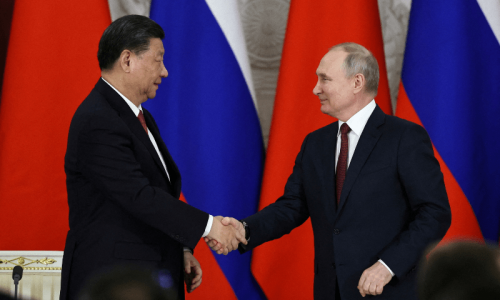WASHINGTON, July 28: The United States should not make it easier for India to resume nuclear testing and produce fissile material for nuclear weapons, says a senior US nuclear.
Michael Krepon, the founding chairman of Washington’s Henry L. Stimson Centre, warned that the operating agreement for a US-India nuclear fails to address these concerns. “It appears that the 123 Agreement fails to meet these minimal standards as well as the clear requirements established in the Hyde Act,” he said.
The operating agreement, also known as the 123 Agreement, was announced simultaneously in Washington and New Delhi on Friday. Undersecretary of State Nicholas Burns, who briefed journalists in Washington on the agreement, said the new operating agreement allows India to reprocess spent fuel under safeguards by the global nuclear watchdog.
That right to reprocess spent US-sourced nuclear fuel has been given only to Japan and the European Union so far.
Critics say that the agreement does not address the concerns expressed in the Hyde Act of December 2006, under which the US Congress allowed the administration to finalise the deal on the condition that India will not resume nuclear testing and will not reprocess US-supplied fuel for weapons.
“At the very least, the Bush administration should not make it easier for New Delhi to resume nuclear testing and to produce fissile material for nuclear weapons,” said Mr Krepon.
“If the 123 agreement has been intentionally negotiated to side-step or bypass the law and the will of Congress, final approval for this deal will be jeopardised,” said Edward Markey, co-chairman of the House Bipartisan Task Force on Non-proliferation.
Daryl Kimball, executive director of the US Arms Control Association said that details of the finalised implementing agreement so far leaked to the media show that “three or four significant issues could be in conflict with US laws.
“They pertain to reprocessing and safeguards, he said.
Congressman Markey vowed that Congress would cast a careful eye on the fine print. “I can only surmise that it includes provisions they fear will raise the hackles of Congress,” said Markey.
He added, “Of course the administration will argue that they aren't breaking the law, but I think that folks up on the Capitol Hill have become increasingly sceptical of the administration's legal arguments.”
Markey was among 23 House lawmakers who sent a letter to Bush this week reminding him that “any inconsistencies” between the agreement and US laws “will call congressional approval deeply into doubt”.
The deal is opposed by many members of Congress who argue that it rewards a country that has refused to sign the Nuclear Non-proliferation Treaty.











































Dear visitor, the comments section is undergoing an overhaul and will return soon.